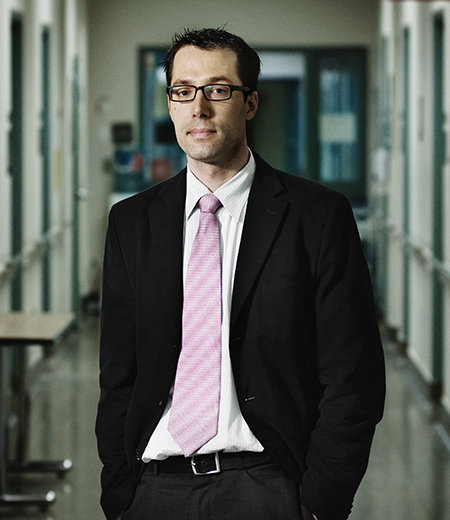
Evan Wood
Renewed medical interest in the use of psychedelic drugs for anxiety, posttraumatic stress disorder (PTSD) and addiction has resulted in small research studies that show some success with the controlled use of these drugs, according to an analysis published in the Canadian Medical Association Journal (CMAJ).
“The re-emerging paradigm of psychedelic medicine may open clinical doors and therapeutic doors long closed,” writes one of the authors, Evan Wood, Professor in the Division of AIDS and Canada Research Chair in Inner City Medicine.
One small randomized controlled trial indicates that LSD-assisted psychotherapy might help reduce anxiety from terminal illness. Another small study, in which the active molecule in “magic mushrooms” was used as part of therapy for alcohol addiction, shows a significant reduction in the number of days alcohol was used as well as in the amount. A small U.S. study of the drug MDMA shows a reduction in symptoms of post-traumatic stress disorder in people with that condition.
“Continued medical research and scientific inquiry into psychedelic drugs may offer new ways to treat mental illness and addiction in patients who do not benefit from currently available treatments,” stated the article, whose lead author was Kenneth Tupper, an Adjunct Professor in the School of Population and Public Health.
Findings from research conducted in the 1950s and 1960s, in which there were challenges to conducting studies and ethical breaches, is helping inform current research in the field.
“Although methodological and political challenges remain to some degree, recent clinical studies have shown that studies on psychedelics as therapeutic agents can conform to the rigorous scientific, ethical and safety standards expected of contemporary medical research,” the authors write.
Canadian researchers are leading studies that are looking at psychedelic drugs as treatment for addiction and PTSD.
The authors emphasize that the studies included in their analysis are small and the results preliminary, and that further research is needed to determine if there is widespread clinical application.